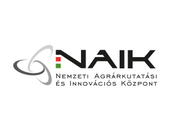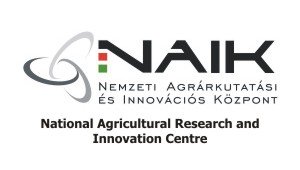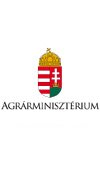National Agricultural Research and Innovation Centre

National Agricultural Research and Innovation Center, NARIC was founded by the governmental act 1476 (VII.24.), on January 1, 2014. An integrated, single legal entity was established from the fragmented and ill-proportioned sectoral governmental RDI capacities (13 research institutes in the field of agriculture and food science), where the institutes keep their professional autonomy as separate organizational units and their financial management is carried out on a high level of independence.
The institutes integrated by NARIC conduct high-quality basic and applied research and development activities related to plant and animal biotechnology/genetics, animal breeding, reproduction and nutrition, aquaculture and fisheries, food and meat science, plant and vegetable production, viticulture and enology, forest research and management, climate change and biodiversity, agroenvironmental research and technologies, and agricultural engineering.
The organisation, by employing nearly 200 researchers, is of significant size even at international level. It is able to join the world’s scientific circulation and increase the recognition of Hungarian agricultural research.
The main public tasks of NARIC are the following:
- developing and executing practice-oriented programmes contributing to the increase and sustainable development of the competitiveness of Hungarian agroeconomy;
- analyzing and evaluating the relations of agricultural production processes and environment, with special regard to the effects of climate change;
- participating in the research, maintenance and further development of biological bases;
- supplying producers with high quality, pathogen-free propagation materials;
- developing control methods, with special regard to the examination of the origin and quality of basic materials and foodstuff;
- performing duration experiments, running monitoring systems, maintaining databases;
- supporting the dissemination and use of up-to-date production methods by providing advisory and information services, in cooperation with professional bodies;
- giving technical support to the national institutions providing education, training in agriculture and food industry;
- maintaining contact with national, foreign and international institutions, with special regard to the research institutes of the Hungarian Academy of Sciences, the Hungarian higher education institutions and the scientific organisations of the European Union;
- assisting the propagation of healthy nutrition among Hungarian population.
- The activities of NARIC include:
- preserving the genetic diversity of Hungarian agriculture, widening and continuously developing the genetic resources of agricultural production, looking for new utilization possibilities; developing production methods for the effective utilization of genetic potential;
- performing physiological, genetic and molecular biology research directed at the biological background of agricultural research; population level examinations;
- developing methods for producing pathogen-free propagation materials, researching micropropagation technologies; establishing and maintaining stock plantations, ensuring background conditions for the production of high quality propagation materials;
- performing reproductive biology examinations to increase the effectivity of artificial insemination;
- developing local technologies for the production of new field, horticultural and forestry plant species and breeds;
- developing cost-effective, environment-friendly horticultural (viticultural), plant production, forestry, fisheries and animal breeding production technologies adjusted to the local natural and biological characteristics of agrarian production;
- developing technological recommendations for mitigating the environmental load of agroeconomy and decreasing harmful emissions;
- researching solutions facilitating the degradation of materials endangering environment and health (e.g., insecticide residues, toxins, etc.);
- developing nutrient and fertilizer application systems, with special regard to protecting the condition of soil, surface and ground water;
- researching water and energy saving irrigation solutions, examining and analyzing the agricultural treatment of inland waters, studying the recycling possibilities for liquid manure, wastewater and other liquid wastes and byproducts;
- studying the technological questions of production systems with low investment cost;
- supporting the optimization of mechanotronic appropriations, decreasing specific energy consumption;
- researching and developing up-to-date, energy, water and raw material processing technologies, promoting their utilization;
- researching environment friendly cultivation methods and production technologies protecting the soil status, performing examinations to lessen the mechnotronic loading of the soil;
- performing research to forecast the effects of climate change and mitigate unfavourable consequences;
- promoting the wide application of renewable energy sources, developing energy saving solutions;
- developing up-to-date analytical methods, with special regard to the assertion of the demands of source protection, lineage control, quality certification, environmental safety and customer protection; developing a quality assurance toolkit;
- developing exportable products wich give high level answers to consumer needs, demands, researching consumer behaviour;
- performing research supporting the production of safe foodstuff based on Hungarian commodities, helping the healthy nutrition of the population and having favourable price-value rate; developing and testing innovative solutions;
- developing food processing solutions usable by local producers;
- applied research assisting the development of Hungarian enology;
- performing examinations to assist forecasting the effect of freshly consumed products and processed food on health status; studies related to nutrition;
- performing reseach directed at the decrease of additives and supplementary materials used in food and feed;
- researching feeding methods suitable to produce high quality animal products, performing experiments to influence nutritive value;
- providing consultancy, performing laboratory tests;
- participating in education and training activities, organizing technical shows and information events;
- performing analyses supporting legislation and regularization, performing impact assessment, preparing impact reports;
- handling technical data bases supporting sectoral administration, decision making; participating in the management of site cadastre.

